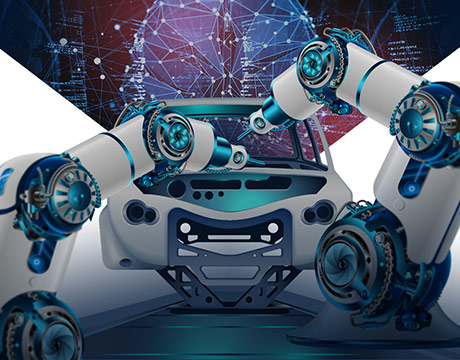The Importance of Cybersecurity: Best Practices for Field Engineers
29 April 2023

Artificial intelligence (AI) has rapidly become an essential component of information technology (IT) in various industries. It is changing the way businesses operate by providing new capabilities for decision-making, automation, and optimization. One area where AI is transforming IT is in the field of engineering, where it is making significant strides in the way engineers approach their work. In this blog post, we will explore how AI is impacting the field of engineering and its potential benefits.
Firstly, AI has enabled engineers to work more efficiently by automating repetitive tasks, freeing up time for more critical activities. For instance, AI-based software can analyze large datasets to identify patterns, anomalies, and trends. This analysis can be used to predict equipment failures, optimize maintenance schedules, and improve safety. By automating these tasks, engineers can focus on more complex and challenging problems, such as designing new products and systems.
Secondly, AI is helping engineers to design better products and systems. AI algorithms can analyze data from previous designs, identify issues, and suggest improvements. They can also simulate the behavior of products and systems in different scenarios, allowing engineers to test their designs thoroughly before implementation. AI-based tools can also optimize designs for factors such as performance, durability, and cost, resulting in products that meet customer needs and are cost-effective.
Thirdly, AI is enhancing collaboration among engineers. AI-based platforms can enable engineers to share data, insights, and designs, leading to better communication and teamwork. Collaborative platforms also allow engineers to work on projects simultaneously, improving productivity and reducing development time.
Fourthly, AI is improving the safety and reliability of engineered systems. AI-based systems can continuously monitor equipment, detecting faults and issues before they become critical. This early warning system can prevent equipment failure, downtime, and safety incidents. Additionally, AI can analyze large datasets to identify patterns and insights that can inform safety protocols and procedures.
In conclusion, AI is transforming the field of engineering, providing engineers with new capabilities and opportunities to improve their work. With the use of AI-based tools, engineers can work more efficiently, design better products and systems, collaborate more effectively, and improve safety and reliability. As AI continues to evolve and become more advanced, we can expect to see even more significant benefits for the field of engineering and beyond.